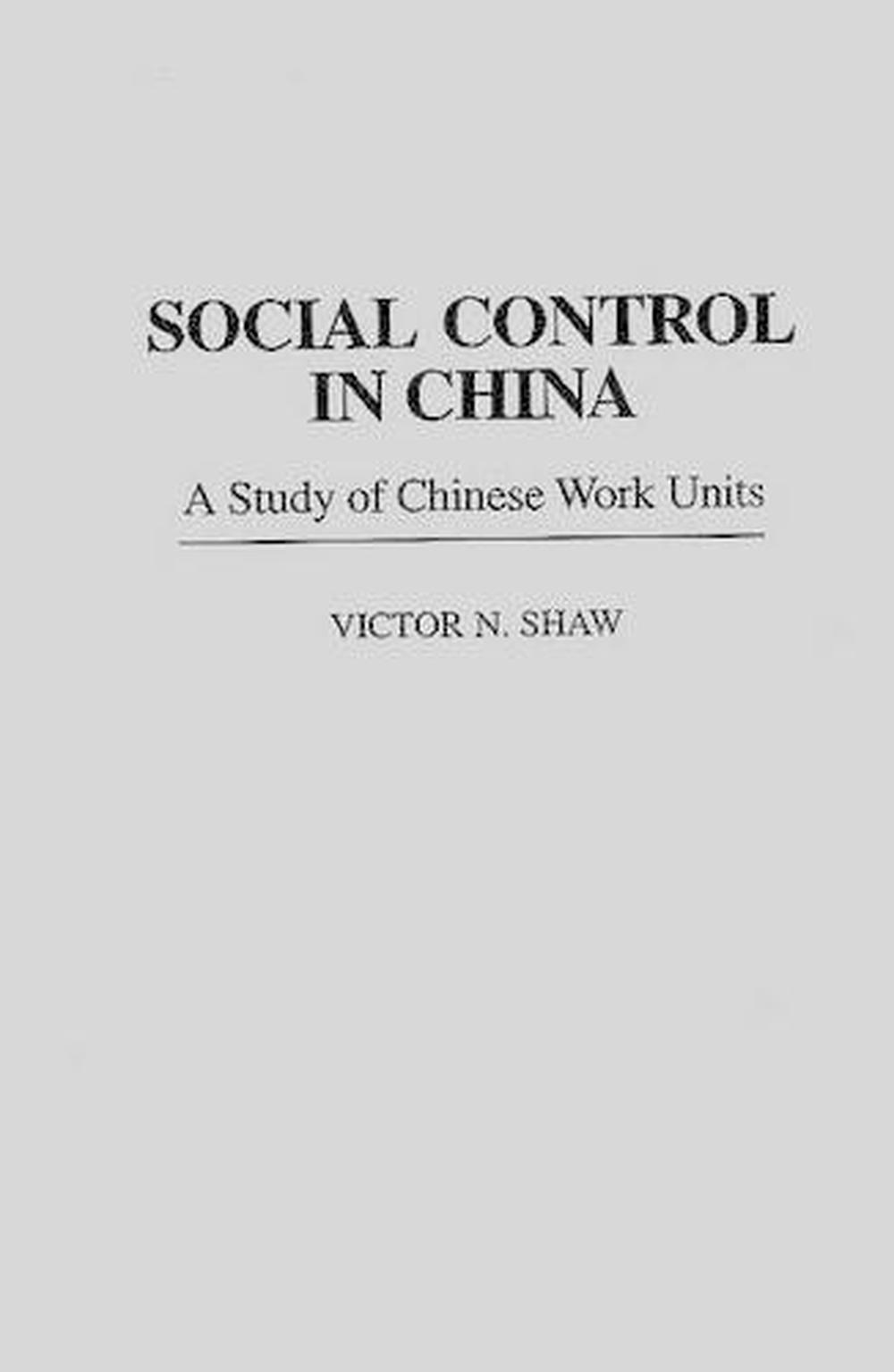
Social Control in China
by Victor N. Shaw
This evolution in the structure of Chinese society means that the authoritarian social control system in China must change if loss of community ties, dislocation, and social disintegration are to be avoided in the coming years.
Hardcover
English
Brand New
Publisher Description
China is in the midst of dramatic economic and social reform—reform that may well suggest a long-term developmental trend toward modernization and democracy. This evolution in the structure of Chinese society means that the authoritarian social control system in China must change if loss of community ties, dislocation, and social disintegration are to be avoided in the coming years. This book provides a blueprint for the social architecture of China and offers an argument for how change in the essential structure of Chinese society must be implemented. Shaw's investigation of work units—the building blocks of contemporary China—pinpoints them as the primary sites of social control and as the most important components of any efforts at reform.
Author Biography
VICTOR N. SHAW teaches in the Department of Sociology at California State University, Northridge. He has published widely on social organizations, mass media, and crime control policy in China.
Table of Contents
Introduction Social Control in Chinese Work Units: The General Structure and Process Chinese Work Units: A General Survey Social Control in Chinese Work Units: Introductory Highlights Conceptual Framework and Research Design The Forms of Social Control in Chinese Work Units Control through Ideology Control through Residency Control through Confidential Records Control through Civil Reward and Penalty Control through Administrative Disciplining Control through Quasi-Justice Control through Para-Security Control through Mass Vigilance and Inclusion Interrelations of Different Forms of Social Control The Foundation of Social Control in Chinese Work Units Political Legitimization The Economic Foundation The Cultural Underpinnings The Controllees Reaction toward Social Control in Chinese Work Units Resistance and Specific Reactions to Different Forms of Social Control in Work Units A General Evaluation of Chinese Work Units A Comparison with the United States A New Theory of Social Control The Challenge and Change for Chinese Social Control The Impact of Reform: Main Initiatives The Demands of Modernization and Democratization Outlooks for Future Chinese Social Control Conclusion References Index
Review
"A comprehensive and richly informed study of the basic organizational unit of Chinese society. The book offers both description and prescription and should be of interest to anyone concerned with social control and contemporary China."-Gary T. Marx, Professor and Chair Department of Sociology, University of Colorado-Boulder
"The work unit has been a central feature in the system of social control developed after 1949 in the People's Republic of China. This book describes in detail the way work units operate. It will be valuable reading for anyone interested in the functioning of modern Chinese society, and for anyone interested in problems of social control more generally."-Maurice N. Richter, Jr., Associate Professor of Sociology State University of New York at Albany
"This book repays reading. It raises important questions and provides an intelligent synthesis of ideas, a strong command of the materials, and a bold analysis of the sociology of everyday life in China."-Gene Kassebaum, Professor of Sociology The University of Hawaii
Promotional
By focusing on Chinese work units-the primary building blocks of Chinese society-Shaw offers the ideal perspective from which to view both contemporary China and the prospects for social and economic change in the coming years.
Long Description
China is in the midst of dramatic economic and social reform--reform that may well suggest a long-term developmental trend toward modernization and democracy. This evolution in the structure of Chinese society means that the authoritarian social control system in China must change if loss of community ties, dislocation, and social disintegration are to be avoided in the coming years. This book provides a blueprint for the social architecture of China and offers an argument for how change in the essential structure of Chinese society must be implemented. Shaw's investigation of work units--the building blocks of contemporary China--pinpoints them as the primary sites of social control and as the most important components of any efforts at reform.
Promotional "Headline"
By focusing on Chinese work units-the primary building blocks of Chinese society-Shaw offers the ideal perspective from which to view both contemporary China and the prospects for social and economic change in the coming years.
Details

